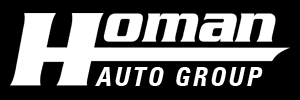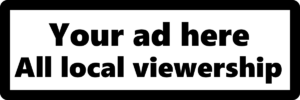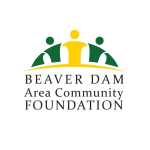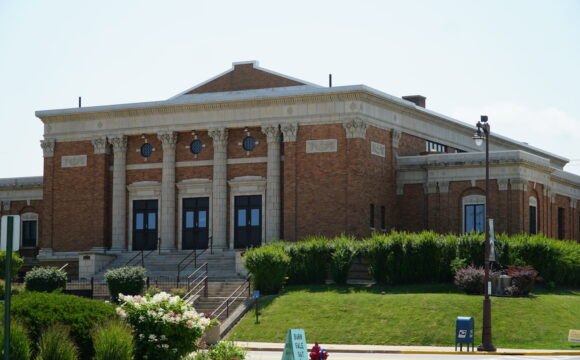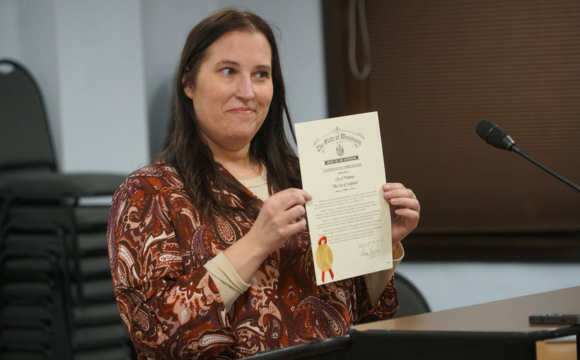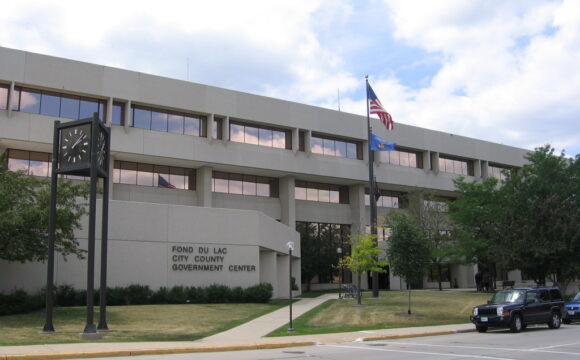WAUPUN — The City of Waupun is starting a pilot program with Municipal Code Enforcement Services to make the city’s code enforcement a more proactive system.
Allison Schwark from Municipal Code Enforcement Services spoke at the meeting, providing an overview of how they could improve code enforcement strategies for both residential and commercial properties. They also offer building and zoning services.
City staff have been meeting with the firm to assess how they could improve code enforcement for the City of Waupun. Municipal Code Enforcement Services is based out of Delevan, Wisconsin, and operates in a number of Wisconsin communities in the region.
City Administrator Kathy Schlieve explained that the current code enforcement strategy is largely complaint based, but the Mayor has been pushing for more proactive enforcement to hold the community to higher standards.
The City of Waupun had previously been looking for an in-house code enforcement officer, but struggled with finding a qualified candidate due to the position being part time. Code enforcement then fell to the Police Department, but they are often too busy to regularly inspect every property that gets a complaint.
Hiring this company to conduct code enforcement on behalf of the City could resolve these issues. Even if they maintain the complaint based system, hiring this company would allow them to be more proactive about following up on complaints.
“The main and most important thing that we do is continuously follow up on the violations,” Schwark said. “Right now it feels like residents are frustrated, they’re feeling like they’re not being heard and their complaints aren’t being addressed in a timely manner. Unfortunately for the Police Department, Fire Department, and city administration, code enforcement takes the backburner. They have so many other job responsibilities to focus on, so even if they do go out on an initial complaint, it’s really hard to continue that follow up—so residents feel they aren’t being taken seriously.”
“The way that I like to do things is that I’ll pair the city with myself and one other individual, so you won’t see a constant turnover of different staff members,” Schwark said. “We would be the primary points of contact, so you’ll get to know us very well. We would integrate into your community as if we are staff members or employees on your team. We’ll work with the Police, Fire Department, Department of Public Works, whoever we need to correspond with to make sure we’re achieving things.”
Schwark suggested some updates to city ordinances regarding code enforcement, including one that would allow the City to fine property owners for reinspection fees and citations after ignoring previous warnings. Adding reinspection fees to the city would cover funding for this program, which bills higher after every subsequent unresolved inspection.
Schwark emphasized that they gather proof of every infraction and changes to the property during the process.
City Administrator Schlieve then explained the specifics of the plan.
“The pilot we’re proposing would focus first on ordinance review,” Schlieve said. “In particular we’re interested in looking at what Allison has presented with reinspection fees, so that the people who are causing the problems will have some responsibility in covering the cost for this service.”
It would also pay for a tracking software that measures the key projects of the pilot program, and whether it improves results in local code enforcement.
Alderman Pete Kaczmarski asked if the term “pilot program” meant it was only temporary. Schlieve said it would have a defined beginning, middle, and end, at which the City would review results. Once they have that data, they can figure out the next steps for the program and whether they would make it a permanent arrangement.
Alderman Kaczmarski then asked if the company sends copies of the code enforcement complaints to local elected officials. Schwark explained that they typically prepare a monthly report for the City Council to review files for every property they have open violation complaints for.
He then asked if Schwark would communicate fire code violations with the Fire Department, which she said they would work with the Fire Department before enforcing any fire code violations. For regular ordinance violations she would communicate with city staff.
She also explained that in the cases that they need to enter a property, they will get permission from the property owner and/or tenants, and work with the Police Department as needed.
Schlieve said that the enforcement pilot program will focus on a specific section of the city at first, and isn’t likely to start until after April due to most infractions being yard-related—which would be covered by snow and unnecessary during the winter. However, some projects can be worked on towards that goal ahead of time, including updates to city ordinances.
Schwark then explained the fee schedule, and the responsibilities that they would have if the City hired Municipal Code Enforcement. This would include the proposed reinspection fee, and recommending citations.
“Code enforcement will never make you money, and that’s not the goal of code enforcement,” Schwark said. “You want to clean up your community, you want to have an amazing place for people to live, you want to raise property values—but you will never make money off of code enforcement. It’s a way to help cover the costs of the individuals you are hiring to do code enforcement.”
Alderman Dan Siebers asked what the recommendation from the City was. Schlieve said that the item was discussion only, but they wanted to know if there was interest from the Council whether they should develop a formal proposal. The pilot program would likely have a $5,000 cap, but that it would have the same hourly cost as the existing code enforcement program.
Mayor Rohn Bishop said he was excited about trying the program, as code enforcement was one of the issues he ran on and that he had been searching for a code enforcement officer since he got elected.
Schwark said their goal was to develop a long term relationship with the City, and that they hope this pilot program proves that it works for Waupun so they could create a more standardized code enforcement program.
Alderman Ryan Mielke asked if this program would work in partnership with building inspections. Schlieve said it would be something they would need to look into in regards to permitting as they look at the outcome of the pilot program.
The item was discussion-only and no action was taken at the meeting. A formal proposal will be brought to the Council at a future meeting.
Also discussed at the meeting was the Ordinance to Amend Ch. 16.02(36m)(a) entitled Definitions-Recreational Vehicle, which was related to the August 26 meeting where the Council declined to change the ordinance restricting parking trailers on city streets. At that meeting, the Council requested that the definition of Recreational Vehicle match the State of Wisconsin’s definition, which was passed unanimously Tuesday.


